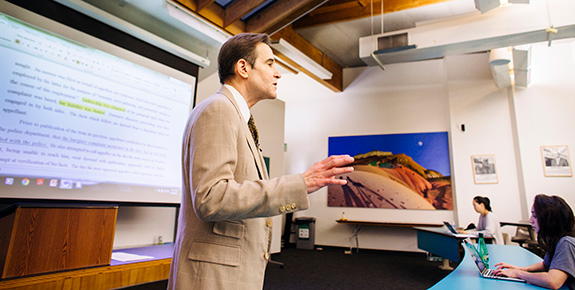
Lawyers think in doctrinal terms; journalists write narratives.
Our approach to teaching will develop legal topics by using case narratives. What follows is a list of tentative topics to be explored through narrative.
Constitutional Law
The federal system; the constitutional role of the judiciary; key constitutional rights; and how the third branch functions.
Criminal Law
Key criminal law concepts; the role of the prosecutor and grand jury; procedural protections afforded criminal defendants; important differences between civil and criminal law.
Civil Law
An introduction to civil law; the role of lawyers, judges, and juries in deciding conflicts; the role of the civil justice system; why litigation and lawsuits are controversial.
Breakout Sessions
The JLS features over a dozen small group sessions on specialized topics suggested by Fellows. Past topics have included disability rights, juvenile law, evidence, trial tactics, intellectual property, habeas corpus and election law.
Fellows will learn:
- Why the Supreme Court is not the final word on most legal questions.
- The 10 most common misunderstandings about the legal system.
- Why legal “technicalities” can be a matter of life or death.
- The most frequent reasons appeals courts reverse lower courts.
Key skills that will be addressed include:
- How to situate run-of-the-mill cases into a broader framework.
- Deciding whether a case is ordinary or precedent setting.
- Honing the capacity to ask lawyers tougher questions.
- How to find new stories in the courthouse.
Additionally, our goal will be to illustrate doctrine using contemporary or well-known conflicts.